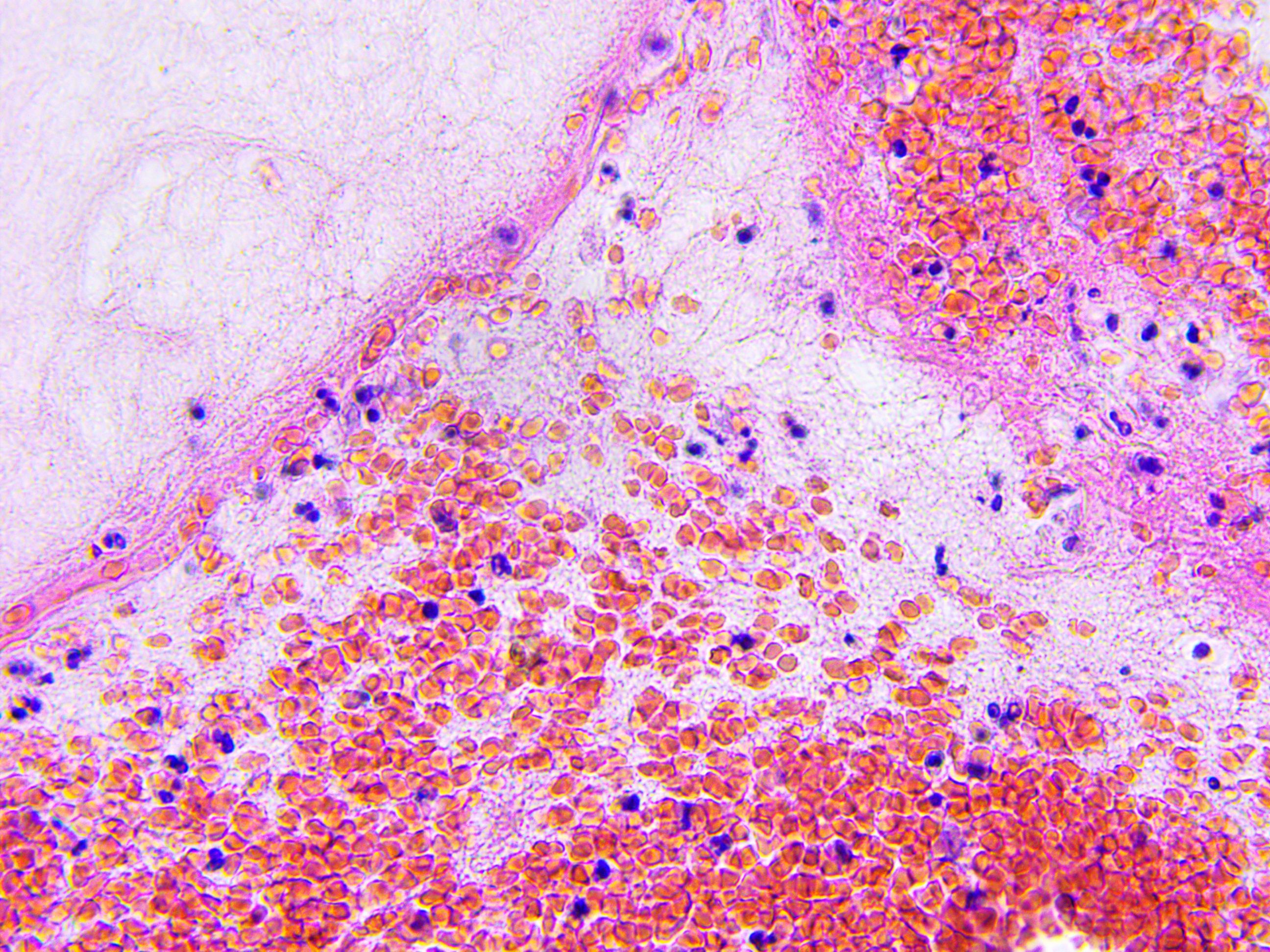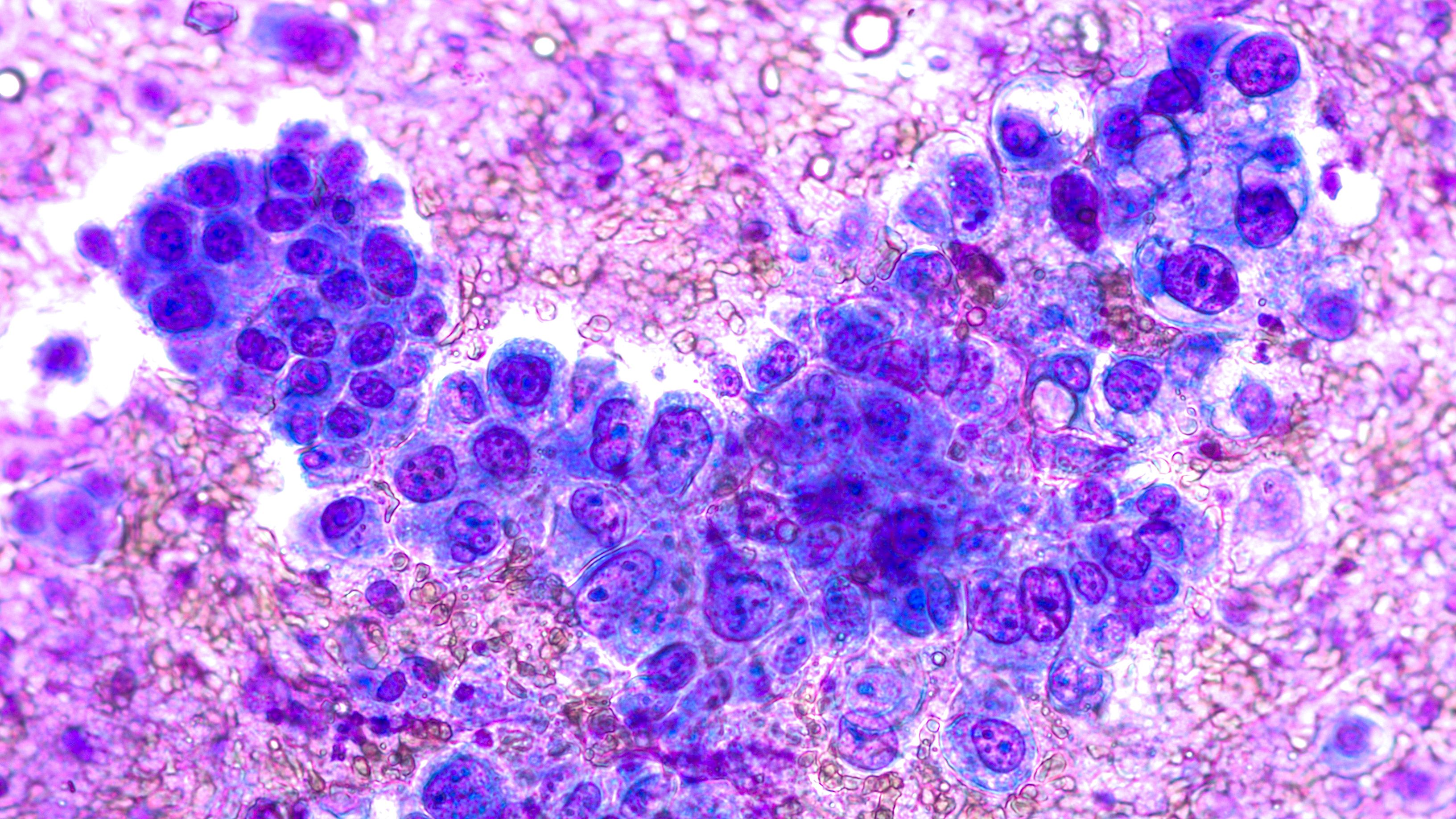FDA Grants Orphan Drug Designation to THIO for Glioblastoma
THIO has received 2 prior orphan drug designations, and the agent has shown promise in preclinical studies for the treatment of glioblastoma.
Macroscopic photo of brain tissue: ©lukszczepanski - stock.adobe.com

- The FDA has granted an orphan drug designation (ODD) to THIO, a cancer telomere-targeting agent, for the treatment of glioblastoma.
- Orphan drug designation is awarded to agents that prevent, diagnose, or treat a rare condition or disease.
- THIO has received 2 prior ODDs for hepatocellular carcinoma (HCC) and small cell lung cancer (SCLC).
THIO has been granted an ODD from the FDA for treatment of glioblastoma, according to MAIA Biotechnology, THIO’s manufacturer.1 The ODD designation provides incentives to make drug development for rare diseases more attainable, including up to 7 years of market exclusivity and tax credits.2
THIO is a first-in-class small molecule cancer telomere-targeting agent, and data presented to the FDA demonstrated that THIO could successfully penetrated the blood brain barrier in syngeneic and humanized murine models of telomerase-expressing brain cancers.
“Treatment with THIO resulted in potent anticancer activity and significant expansion of the animal lifespan for several difficult to treat cell lines and xenograft mouse models,” said Sergei Gryaznov, PhD, chief scientific officer of MAIA Biotechnology, in a press release.1 “These results stem from THIO’s remarkable mechanism of action and its BBB penetrating property that allows for direct targeting of brain tumors in vivo and potentially in glioblastoma patients.”
In 2022, THIO was granted ODDs for treatment of HCC and SCLC.
Phogomicrograph of fine needle aspiration cytology of a pulmonary (lung) nodule showing adenocarcinoma, a type of non small cell carcinoma: © David A Litman - stock.adobe.com

An ongoing phase 2, open-label, multicenter trial (NCT05208944) of THIO is enrolling and evaluating the agent in patients with advanced non–small cell lung cancer (NSCLC). The trial has an estimated enrollment of 182 patients.3
Part A is a safety lead-in group with a modified 3+3 design. Patients in this arm are being treated with a total of 180mg or 360 mg of THIO plus 350 mg of cemiplimab (Libtayo) per cycle. Patients in part B are receiving a total of 60 mg, 180 mg, or 360 mg of THIO plus 350 mg of cemiplimab per cycle. Patients in part C are receiving a total of 540 mg of THIO plus 350 mg of cemiplimab per cycle.
The primary end points are dose-limiting toxicities, treatment-emergent adverse events (AEs), serious AEs, overall response rate, and disease control rate. The secondary end points are duration of response, progression-free survival, and overall survival.
Patients with stage III or stage IV NSCLC who either progressed or relapsed after treatment with an immune checkpoint inhibitor, have an ECOG performance status of 0-1, and have adequate organ function are eligible to participate in the trial. Patients with untreated central nervous system metastases, active gastrointestinal bleeding, history of another concurrent malignancy, active infections requiring systemic therapy, or a condition requiring systemic treatment with immunosuppressive medication will be excluded from the study.
The trial has an estimated completion date of December 2024.3
“We are pleased to receive a third orphan drug designation for THIO, further highlighting FDA’s recognition of THIO’s potential in the treatment of multiple cancer indications, including rare ones such as glioblastoma,” said Vlad Vitoc, MD, chairman and chief executive office of MAIA Biotechnology, in a press release.1 “We consider this ODD an important milestone for our development strategy and for glioblastoma patients who could benefit from a potentially revolutionary therapy.”
REFERENCES:
1. FDA grants orphan drug designation to MAIA Biotechnology for THIO as a treatment for gliolastoma. News release. MAIA Biotechnology. November 10, 2023. Accessed November 10, 2023. https://tinyurl.com/f7ur364p
2. Designating an orphan product: drugs and biological products. U.S. Food & Drug Administration. Updated July 8, 2022. Accessed November 10, 2023. https://tinyurl.com/24muw8am
3. THIO sequenced with cemiplimab in advanced NSCLC. ClinicalTrials.gov. Updated August 21, 2023. Accessed November 10, 2023. https://clinicaltrials.gov/study/NCT05208944
Nogapendekin Alfa Plus Checkpoint Inhibition Improves Survival in NSCLC
April 25th 2024Following its recent FDA approval in non-muscle-invasive bladder cancer, nogapendekin alfa has also shown overall survival benefits in addition to checkpoint inhibitor therapy in patients with non-small cell lung cancer.
Read More
Emphasizing the Need for NGS in Advanced NSCLC to Determine Treatment
April 23rd 2024During a Case-Based Roundtable® event, Joshua Sabari, MD, led a discussion on the need for next-generation sequencing to determine treatment in patients with EGFR-positive advanced non–small cell lung cancer in the first article of a 2-part series.
Read More